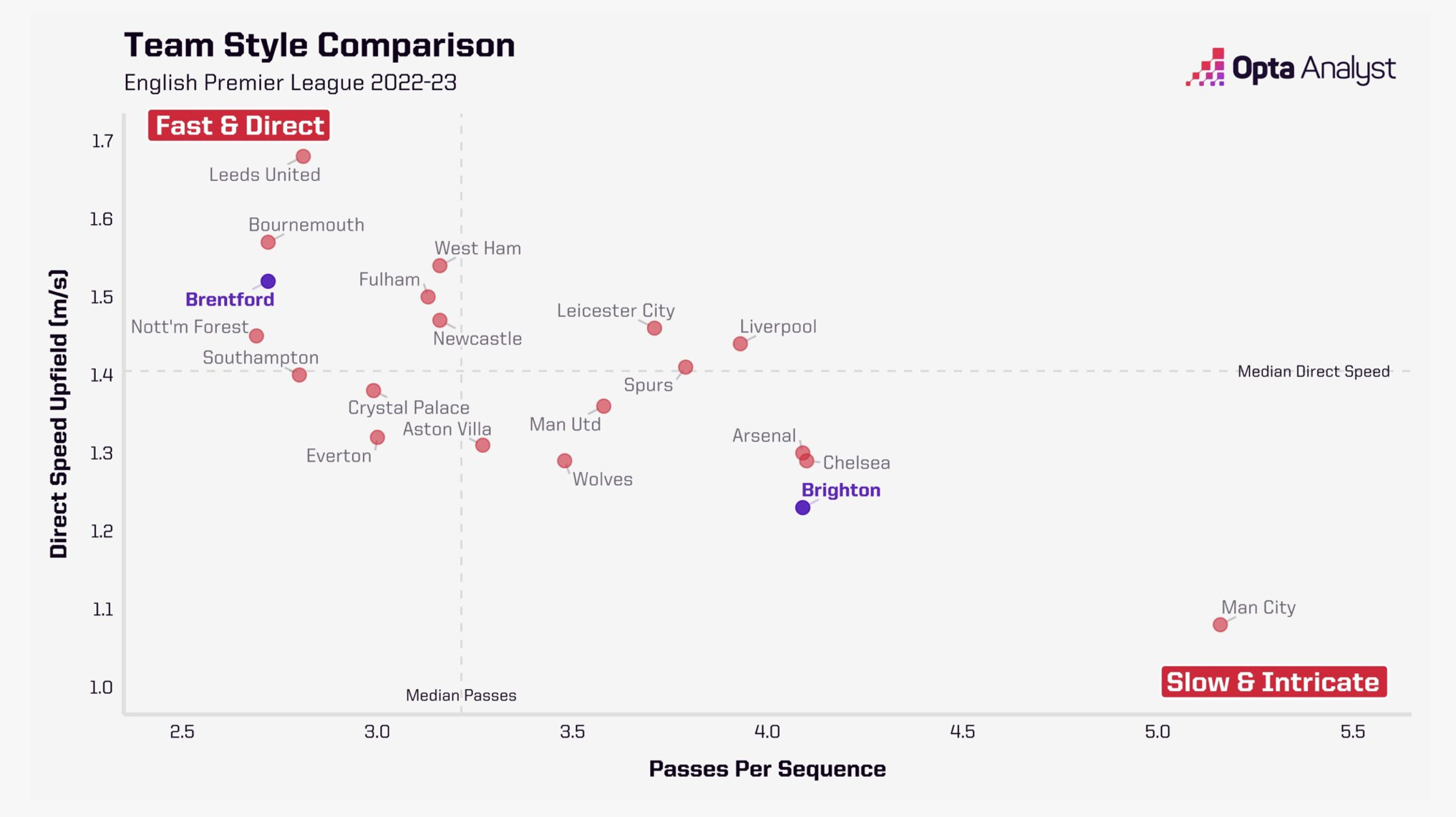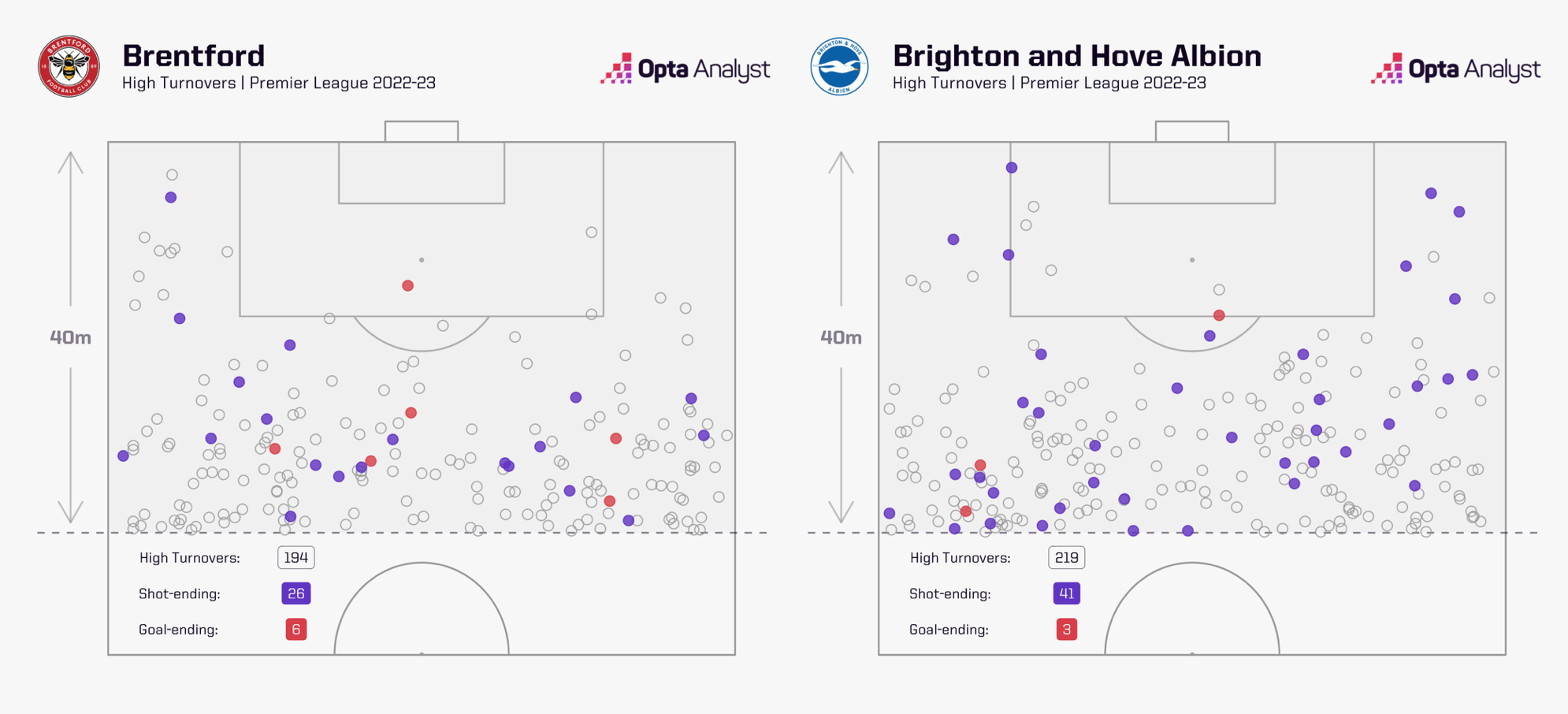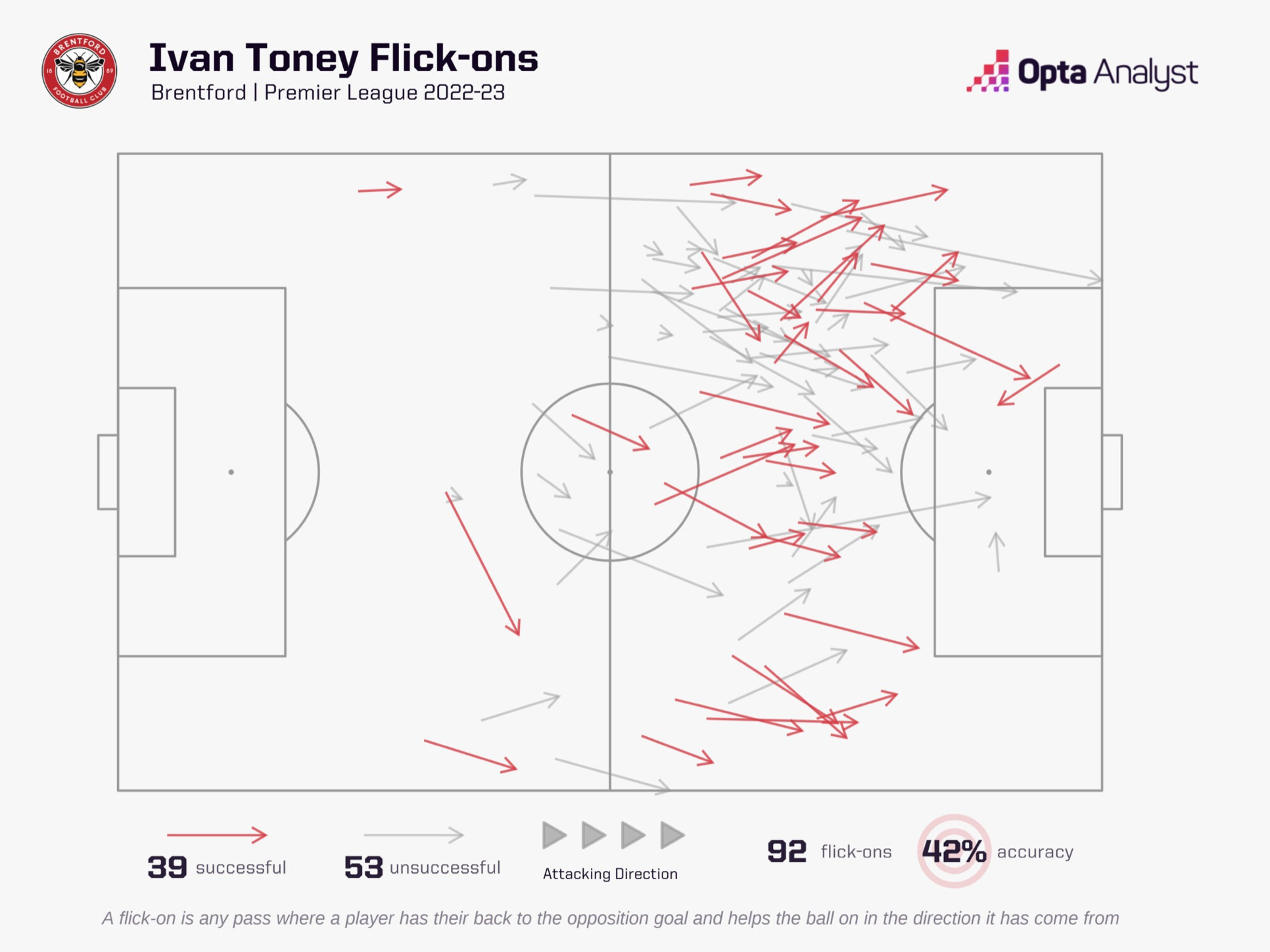A Data Revolution
Data is at the heart of everything we do at Smartodds. And increasingly, the analysis of relevant data is also an integral part of long-term planning and match preparation for many teams across all sports. But there is something of a revolution taking place, and two competing directions. Unsurprisingly, money drives both.
On the one hand, appetite for data among all participants in sporting events – clubs, fans, the media … – is greater than ever, and data providers are becoming increasingly sophisticated in the tools and analyses they provide (and make money from). On the other, given the expanding ways in which sports’ data are used, there are different parties trying to maximise the value to be made from them, and this battle has the potential to complicate the current model whereby pretty much any data can be obtained provided you’re happy to pay.
Brighton versus Brentford
Anyone attached to Smartodds won’t need reminding of the significance of the Brentford versus Brighton fixture in the Premier League. Earlier this season, Brentford beat Brighton 2-0 at home, though this was soon after de Zerbi had replaced Graham Potter as manager and Brighton were still adapting to the change of style. At the time of writing this post, the return match at Brighton is about to take place at the weekend.
I mention all this because Opta, now one of the world’s leading providers of sports data, provide regular and free analyses of their own data, the most recent of which is a summary of the similarities and differences between Brighton and Brentford in the run-up to this weekend’s game. To paraphrase: both teams have a similar heritage, having owners whose background is in the gambling industry. And both clubs are financially poor, compared to the majority of Premier league teams. To compensate, they have had to build teams and strategies based on an understanding of how to maximise limited resources against wealthier teams that use their resources less efficiently. But the strategies they have adopted, and the styles of play this has led to, are markedly different. As the article says, both clubs have developed a form of pragmatism to cope with their inferiority of resources, but the data show two contrasting versions of pragmatism.
The following plots are all taken from the Opta article.
The first plot compares average speed of attack and the number of passes per move of all Premier League teams this season.

By the measures in this plot, Brentford and Brighton are at virtually opposite ends of the scale. Brentford tend to attack fast, with relatively few passes per move. Brighton’s build-up is slow, deliberate and with many passes. In practice this means Brentford mostly try and pass over the opposition press; Brighton try to play through it. And the point is: this can be learnt from the data; no need to watch the matches.
But one point not discussed in the Opta article is that while Brighton’s overall style is similar to that of several of the more successful teams this season, Brentford’s is more similar to several of the struggling teams. This implies that Brentford have found the knack of being successful with a style of football that other teams have struggled with.
One reason for that is contained in the following figure.

This displays information on each team’s turnovers in the opposition half. Brighton have made rather more of these, and turned them into significantly more shots than Brentford have managed. But Brentford have been more efficient in turning such situations into goals. That’s to say Brentford are more ruthless in making the best of the fewer chances they create.
Consider also the following figure, which summarises one aspect of Ivan Toney’s contribution to Brentford’s play.

A total of 92 attempted flick-ons is an extraordinary amount – the next-highest in the league is 50. So that’s almost double the amount of flick-ons compared to anyone else in the league. The success rate of 42% is also remarkable. This exemplifies how Brentford are successfully playing to their strengths, and again this is learnt entirely from the data. Moreover, in praise of Opta, like many of their posts, the Brighton-Brentford article is an articulate analysis, freely available for download. (Albeit, you might regard the articles as an advert for the raw data, which are rather expensive to purchase.)
Project Red Card
The other side of the coin. Perhaps precisely because of the flourishing demand for sports data and the profits some organisations are making from it, legal action is currently being taken by a group of players who are challenging the use of data in which they have involvement. ‘Project Red Card’, as it is called, makes the case that players have ownership rights on ‘personal data’ that pertains to them. As such, they are entitled to reimbursement, even retrospectively, for any unauthorised use that is made of such data. In short: if people are making money out of sports’ data, the players want a share of it.
Of course, to some extent the devil is in the detail: what exactly is ‘personal data’? Is it physical attributes, like age, height and weight? Or does it include ‘goals scored’, ‘numbers of assists’ and so on? But either way, given the increasing sophistication of sports models of all varieties, any restriction on data usage due to player ownership is likely to impinge on agencies like Opta and the clubs and data analytic companies that currently rely on the data they provide.
But there’s a sting in the tail, even for the players who are being represented in this case. The Red Card Project is being coordinated by an umbrella organisation called ‘Sport Data Technology and Governance‘. Their website explains
Data is the new oil of the world and we are helping sport to understand and benefit from this.
The word ‘sport’ is doing a lot of lifting in this sentence. Also, one of the members of the group is described as `a leading thinker in the space of personal data income’. No, me neither. And this analysis of The Red Card Project’s aims and likely outcome suggests that players may not actually benefit at all – individual gains being offset by club losses, that in turn lead to reduced player fees – and that the only winners might be lawyers and funders of the project.
Summary
In summary, data are valuable. Everyone knows it: clubs, gamblers, the media, fans and lawyers. And there’s a battle taking place as to who owns the data in the first place. Meantime, I’ll update this page with data from this weekend’s Brighton-Brentford game once they’re available.
